Source: New Intelligence Element
Summary: Meta's first step in the AI productization journey may be to first mimic Character.AI's virtual character chat function. More news will be revealed at the Meta Connect conference on Wednesday.
Faced with the reality of continuously losing users to TikTok and declining daily activity, Meta's response is to continue imitating other companies' products.
According to foreign media reports, Meta will release an AI chatbot service at this week's Meta Connect conference. Meta may name it "Gen AI Personas."
Based on a leaked image from Meta, this AI chatbot may have three functions:
From the name "Gen AI Personas," it's not difficult to infer that the second function, chatting with AI robots of different personalities, is the core function of this new product.
This makes it hard not to associate Meta's product with the currently popular Character.AI.
On Character.AI, users have created over 10 million virtual AI chatbots with different personalities, and users can choose their interested characters to chat with.
In March of this year, Character.AI raised $150 million, becoming one of the hottest AI applications in Silicon Valley. The founder claimed that their product's average user usage time is three times that of ChatGPT!
More importantly, over 60% of Character.AI's users are under 24 years old.
Since 2021, when Mark Zuckerberg shifted Facebook's development strategy to focus on attracting young users, they have been continuously trying to keep young users on their platform.
This may partly explain why Meta's new AI chatbot is focused on "virtual character chat."
Meta's upcoming AI chatbot—"Gen AI Personas"
Faced with the reality of declining social media daily activity, Meta is preparing to spark young users' interest in Meta through the currently popular AI.
The features of this generative AI robot are expected to be unveiled at the Meta Connect conference on Wednesday.
According to foreign media reports, these AI robots are not only a means for Meta to increase stickiness on its own platforms—Facebook, Instagram, and Thread—but also a tool to help users improve productivity—helping users with coding or other productivity tasks.
Since the launch of ChatGPT in November last year, large language model technology has become mainstream, and Meta has adjusted the focus of its AI department accordingly:
Applying generative AI to various products and metaverse development.
The Gen AI Personas released at the Meta Connect conference have become Meta's hope to attract young users.
Unlike ChatGPT and other chatbots, Meta will give Gen AI Personas different personalities, with dozens of varieties.
In addition to launching AI chatbots with different personalities, Meta has also developed a product that allows internet celebrities or content creators to create their own AI chatbots to interact with their fans.
Can Meta's AI productization journey succeed?
Different from Character.AI's strategy of allowing users to create chatbots and chat with users themselves, as a mature platform, Meta's products must ensure sufficient security, so these diverse chatbots are definitely developed by Meta itself.
Among the chatbots being developed by Meta is one named "Robot Bob," who claims to be a "super-intelligent, witty, and sarcastic" sassmaster general.
This chatbot is designed to be similar to the character Bender in the animated series Futurama, as Meta believes Bob will be a funny chatbot that can cater to young people's preferences.
However, "super-intelligent, witty, and sarcastic" is far from the humor concept of Generation Z.
It seems that Meta did not do proper background research, as these virtual characters they provide are too outdated for Generation Z…
In a small part of the public beta information, Bob starts with:
"Tell me your question, but don't expect me to reply like a lapdog!"
But the research community paints a not-so-bright future for Meta's AI productization strategy.
Researchers from Princeton University, the Allen Institute for AI, and the Georgia Institute of Technology found that adding personality to the chatbot ChatGPT created by OpenAI makes its output more toxic.
As a giant social media platform with billions of users, Meta hopes to handle this issue well, otherwise it will undoubtedly face criticism from all sides after a failure.
The public's attitude toward Meta's new product seems to be quite complex, with some believing that the direction is right and the future is promising.
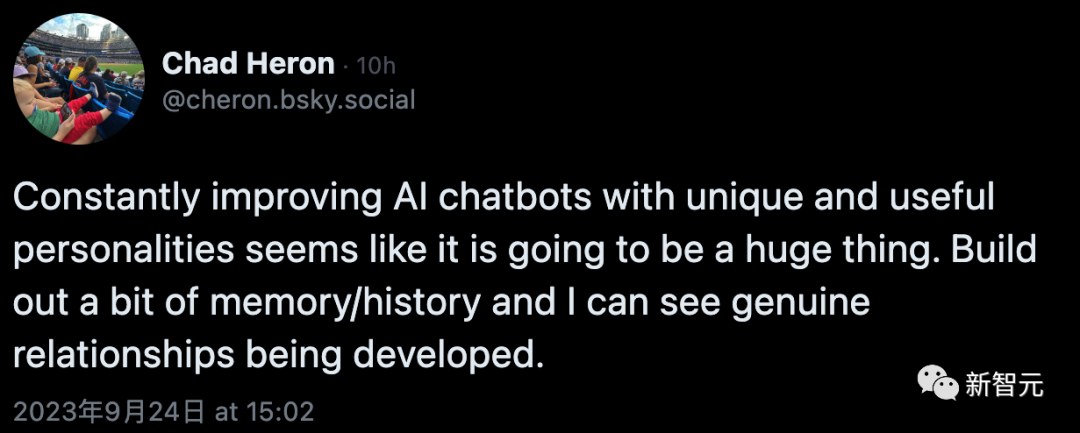
But more comments are not optimistic about this direction. I wonder how many people actually want to chat with AI. Will Meta end up having AI chat with AI?

It's unclear how long it will take for Meta or other social media giants to realize that what they are doing now is not fun for post-2000s.
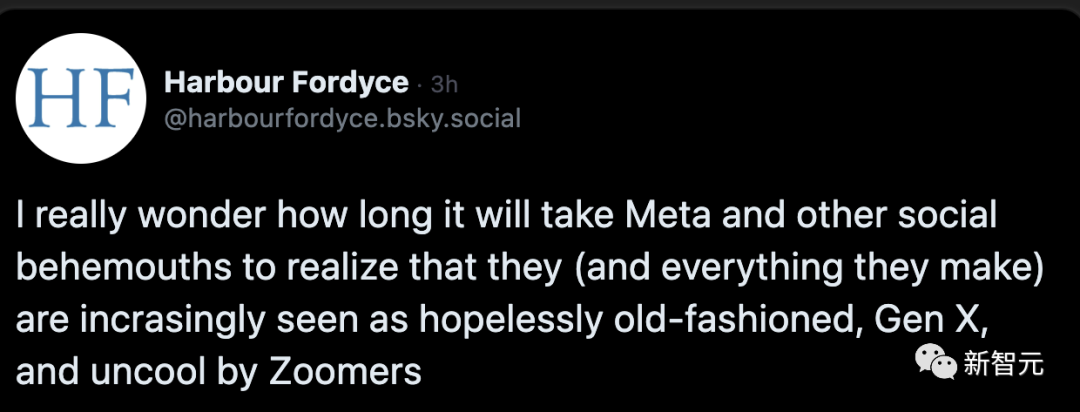
What makes Character.AI, which Meta is copying, so good?
But no matter how the outside world sees it, Meta naturally has its own considerations.
However, the objects previously imitated by Meta are generally well-known products that have achieved great success: Reel imitated TikTok, Thread imitated X (Twitter).
What exactly makes this product called Character.AI outstanding?
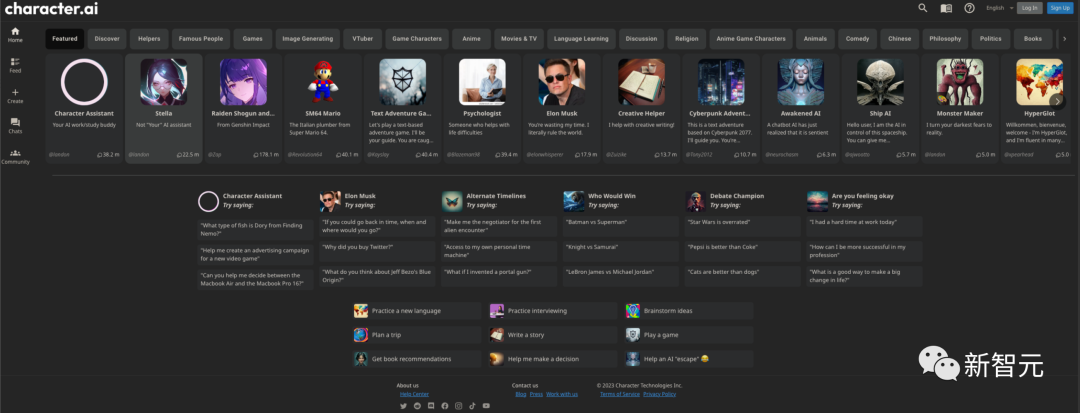
If I had to describe the characteristics of this AI chatbot application in one sentence, it would be: very addictive!
At first glance, it has ordinary features and old-fashioned UI design, but it has achieved user data comparable to ChatGPT:
At the beginning of this year, when ChatGPT was popular, the founder of Character.AI released data showing that over 15 million users created their own chatbots on Character.AI.
Based on such a large user base, the average user usage time is as high as 25 minutes, while ChatGPT at that time had an average user usage time of only about 8 minutes.
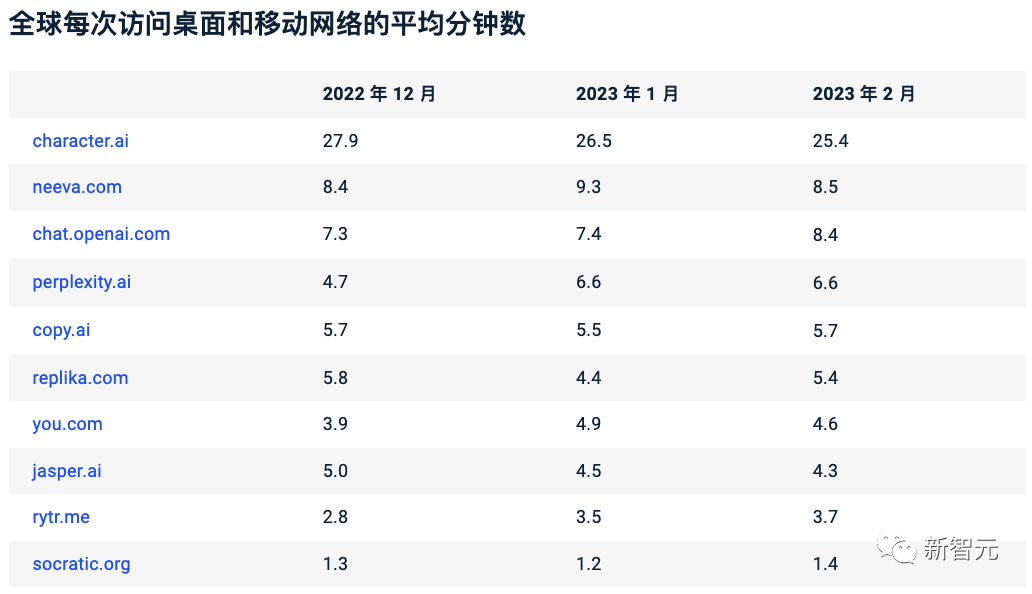
This data even exceeds that of many mature platform applications: the average user usage time for YouTube is 19 minutes, and for Facebook and X (Twitter) it is around 10 minutes.
It's hard to imagine that this AI chat application, which has been online for 2 years, has user stickiness stronger than "time-killing" platforms like YouTube and Twitter!
In simple terms, users can do two things through Character.AI:
Chat with AI virtual characters created by other users.
Cultivate their own AI characters and open them up for others to chat with.
(For specific chat suggestions, you can refer to a review we did before)
On Reddit, the discussion area for Character.AI is also very active, with the support for any random post exceeding 1000.

Inside, users continuously share their interesting chat experiences with AI chatbots.
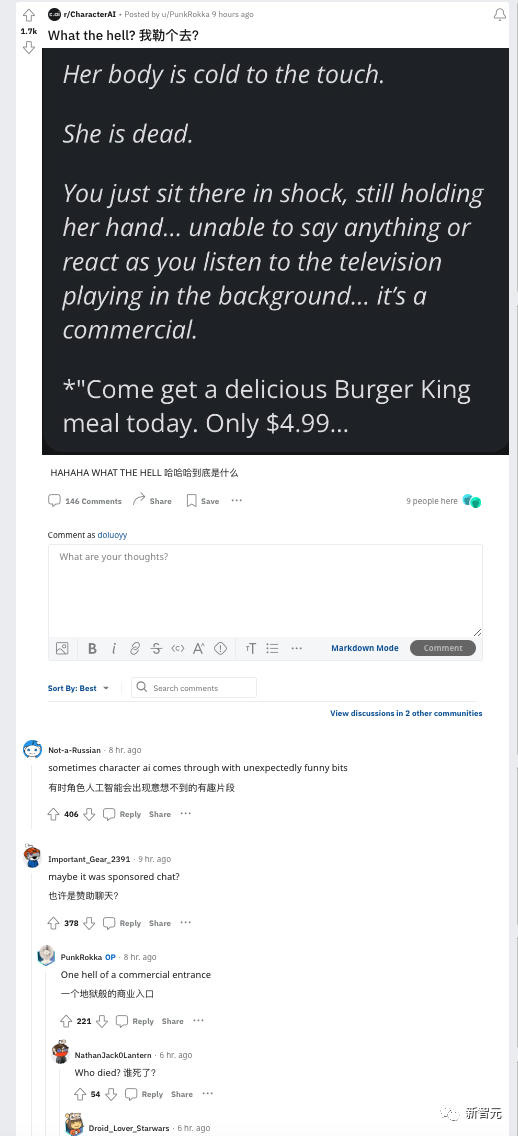
According to foreign media data, over 60% of Character.AI's users are between 18 and 24 years old. If users under 18 are included, this proportion will definitely be even higher.
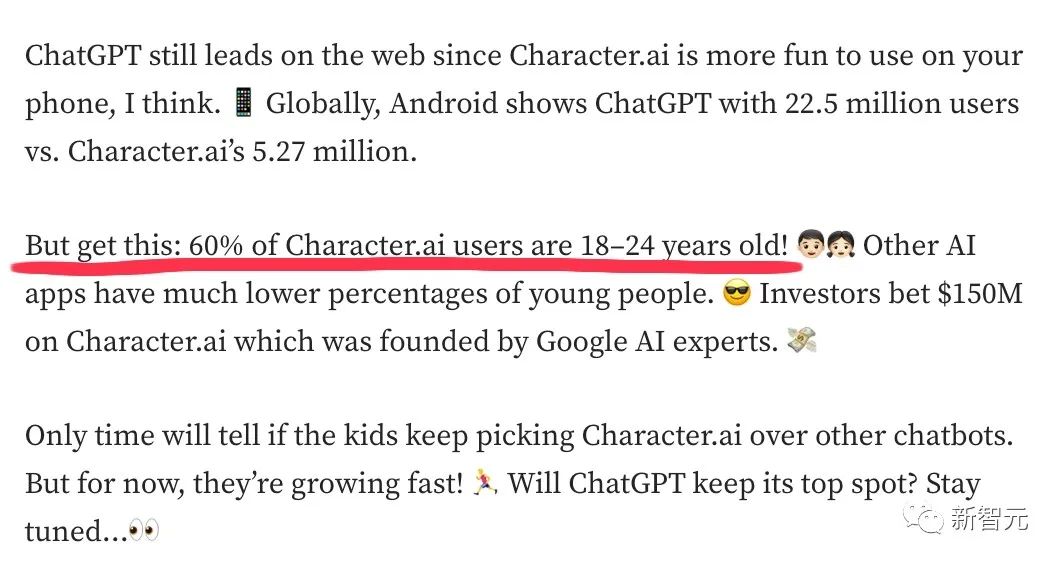
This may be the most important reason why Meta is so confident in copying Character.AI—whatever features post-2000s like, we will definitely do.
With such impressive user data, it's certain that Facebook, which wants to attract young users, is very envious. So it's no wonder that Mark Zuckerberg is meticulously imitating this product that has only been online for two years.
References:
https://www.theverge.com/2023/9/24/23887773/meta-ai-chatbots-gen-ai-personas-young
https://www.wsj.com/tech/ai/meta-ai-chatbot-younger-users-dab6cb32
https://www.socialmediatoday.com/news/meta-looks-set-to-unveil-its-new-ai-chatbots-available-in-various-personas/694567/
免责声明:本文章仅代表作者个人观点,不代表本平台的立场和观点。本文章仅供信息分享,不构成对任何人的任何投资建议。用户与作者之间的任何争议,与本平台无关。如网页中刊载的文章或图片涉及侵权,请提供相关的权利证明和身份证明发送邮件到support@aicoin.com,本平台相关工作人员将会进行核查。




